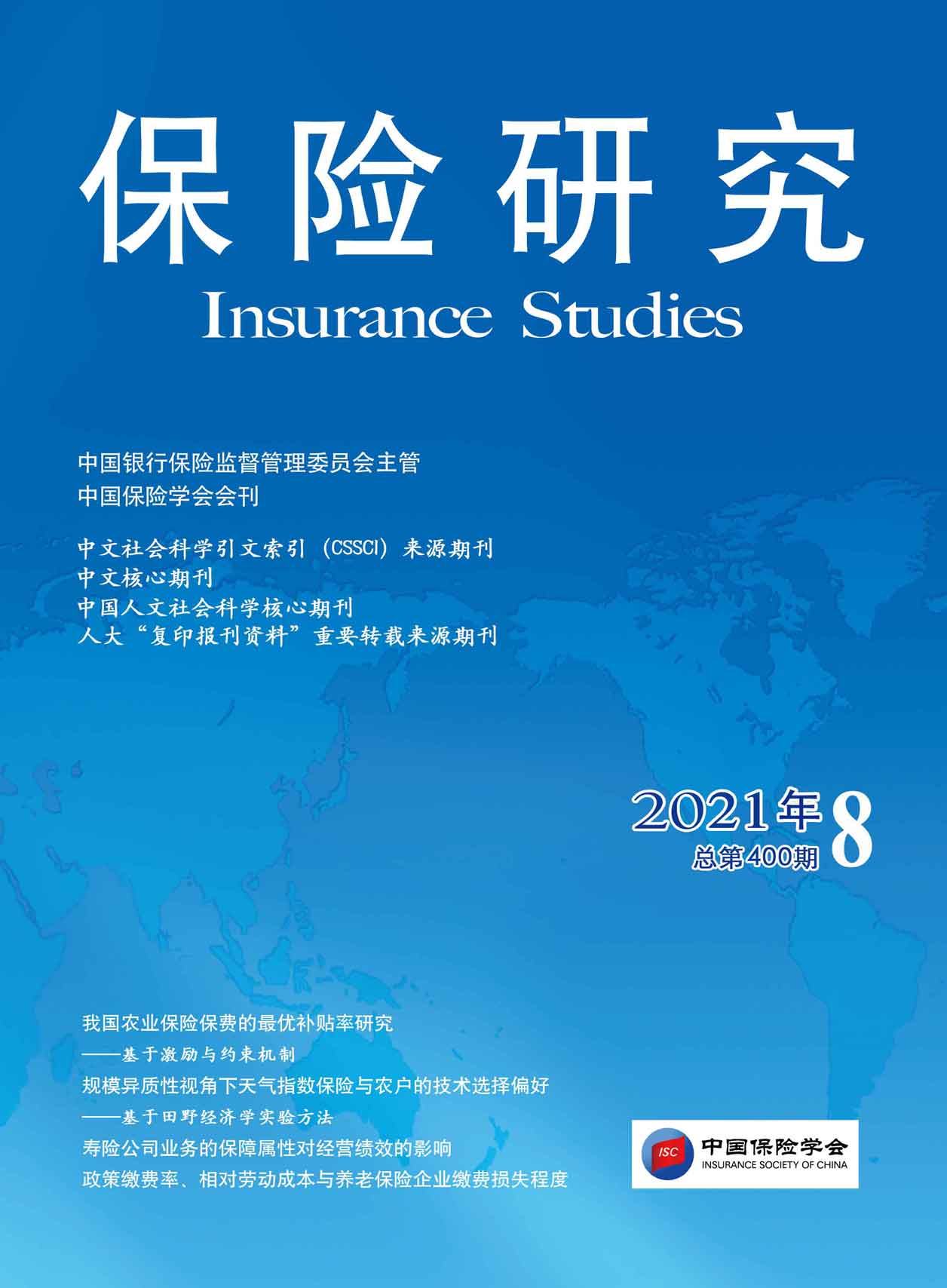
《保险研究》20210808-《医保城乡统筹对大病患者医疗利用及健康不平等的影响——基于东中西部微观调研数据的实证研究》(许新鹏)
[中图分类号]F842.6 [文献标识码]A [文章编号]1004-3306(2021)08-0111-17 DOI:10.13497/j.cnki.is.2021.08.008
资源价格:30积分
- 内容介绍
[摘 要]本文基于机会平等理论和东部、中部和西部典型试点地区的一手微观调研数据,从理论和实证角度分析了大病保险制度城乡统筹模式对城乡大病患者医疗服务利用和健康不平等的影响。研究结果表明:相比未统筹模式,大病保险制度城乡统筹对农村患者的医疗服务利用和自评健康均存在显著的积极效应,对于城镇患者的医疗服务利用和自评健康则无明显改善作用。已统筹模式下,一元制相比二元补偿统一制模式,能够进一步改善城乡大病患者的医疗服务利用和健康状况,且对城镇患者的效应略高于农村患者。在机会平等理论事前和事后补偿原则下,城乡统筹模式下农村大病患者所面临的医疗服务利用和健康公正缺口显著更小,说明大病保险制度城乡统筹能显著缓解城乡大病患者在医疗服务利用和健康方面的机会不平等。对于已统筹模式,在缩小城乡大病患者的机会不平等方面,暂无明显证据表明一元制模式相对二元补偿统一制更优。
[关键词]大病保险制度;城乡统筹模式;医疗服务利用;健康;机会不平等
[基金项目]本文系国家自然科学基金项目“城乡居民重大疾病保障制度模式、效应评估与对策研究”(71573118)、国家自然科学基金项目“统筹城乡医疗保障制度对城乡居民健康及医疗利用的影响研究———基于自然实验框架下的分析”(71373120)的阶段性成果。
[作者简介]许新鹏,南京大学管理学博士,南京医科大学公共卫生学院讲师,研究方向:健康经济与医疗保险。
Urban-Rural Healthcare Pooling′s Impacts on Healthcare Utilization and Health Inequality for Patients with Serious Illness—An Empirical study based on micro survey data of eastern,central and western China
XU Xin-peng
Abstract:Based on the theory of Equality of Opportunity and the first-hand micro-survey data of typical pilot areas in eastern,central and western China,this paper analyzed theoretically and empirically the effects of the urban-rural pooling of the supplementary major medical expenses insurance on healthcare utilization and health inequality for patients with serious illnesses.The results shows that,compared with the non-pooling mode,the urban-rural pooling has a significant positive effect on the use of medical services and self-rated health of rural patients,but has no significant improving effect on urban patients.Under the pooling mode,the unitary mode can further enhance the healthcare utilization and health of patients in both urban and rural areas compared with the dualistic mode,and the effect on urban patients is slightly higher than that on rural patients.Under the principle of Ex-ante and Ex-post compensation principle of the equality of opportunity theory,the gap of medical service utilization and health equality faced by rural patients under the pooling mode is significantly smaller,which indicates that the pooling mode can significantly alleviate the opportunity inequality in medical service utilization and health of urban and rural patients with serious illness.The study also finds that for the pooling mode,there is no obvious evidence that the unitary mode is better than the dualistic mode in reducing the inequality of opportunity between urban and rural patients.
Key words:the supplementary major medical expenses insurance;urban-rural pooling mode;healthcare utilization;health;inequality of opportunity
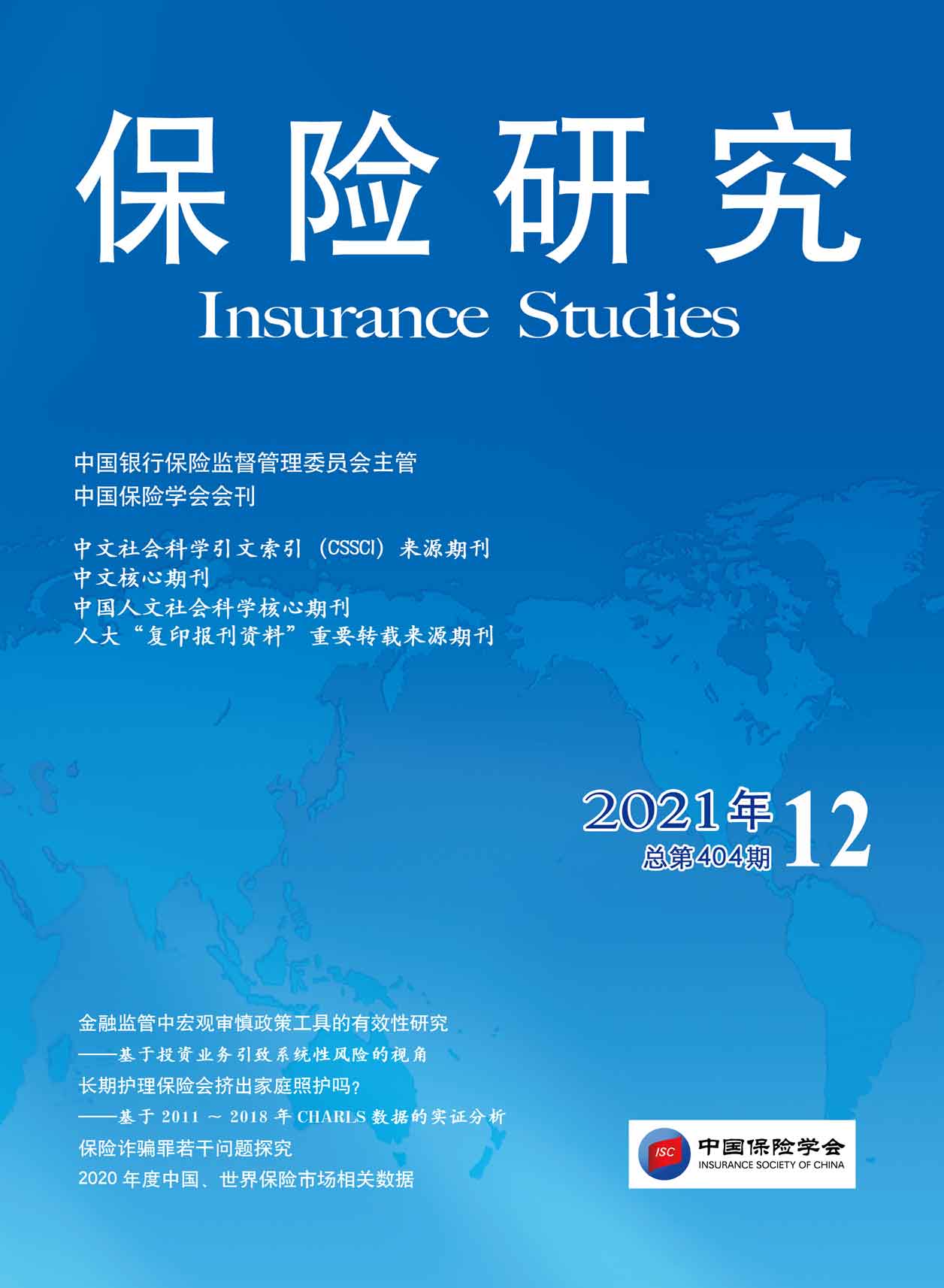
《保险研究》20211201-《金融监管中宏观审慎政策工具的有效性研究——基于投资业务引致系统性风险的视角》(邹奕格、粟芳)
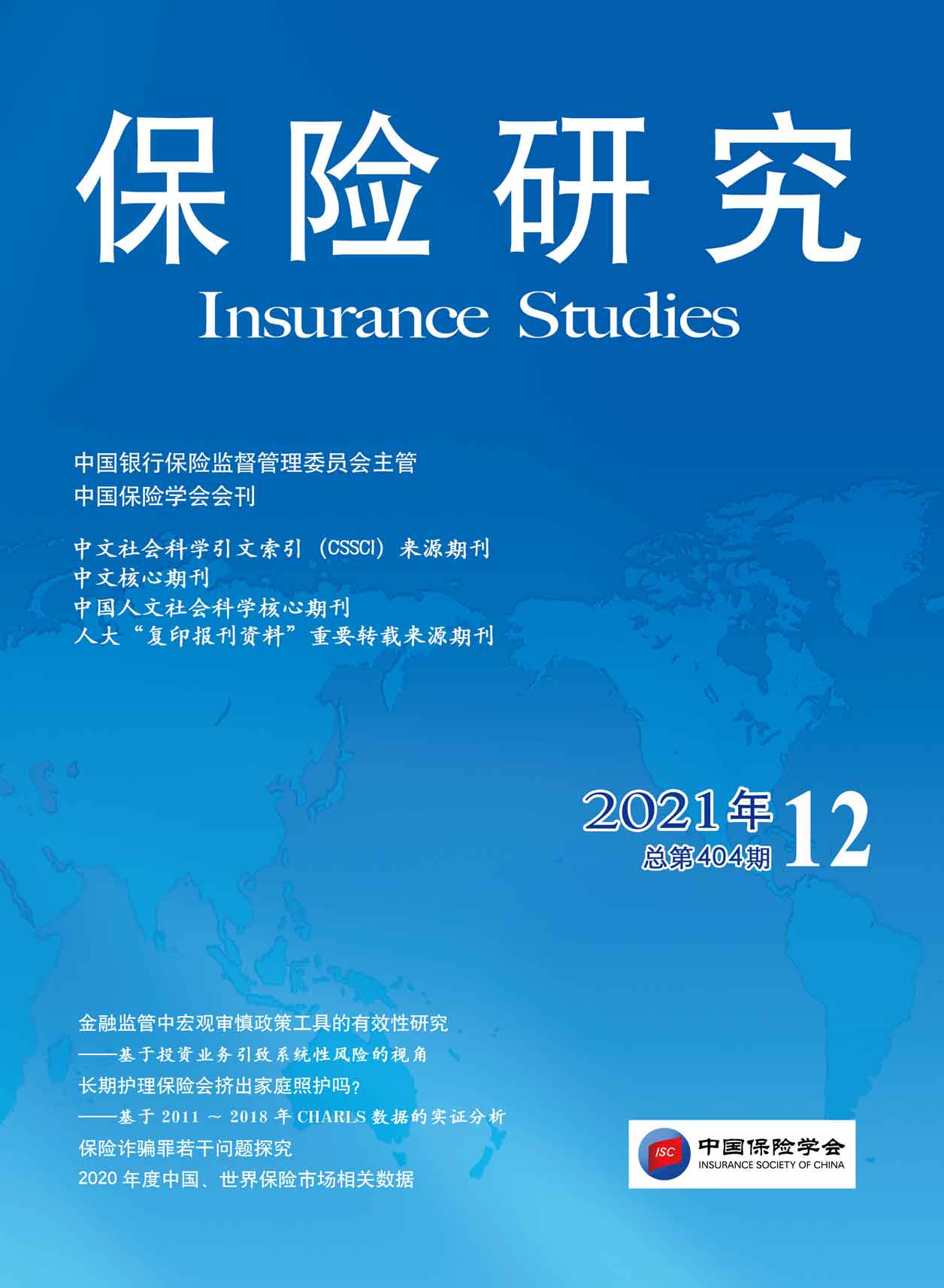
《保险研究》20211202-《长期护理保险会挤出家庭照护吗?——基于2011~2018年CHARLS数据的实证分析》(朱铭来、何敏)

《保险研究》20211203-《参与农作物保险是否促进农户农地转入?——基于内蒙古的微观实证》(柴智慧)
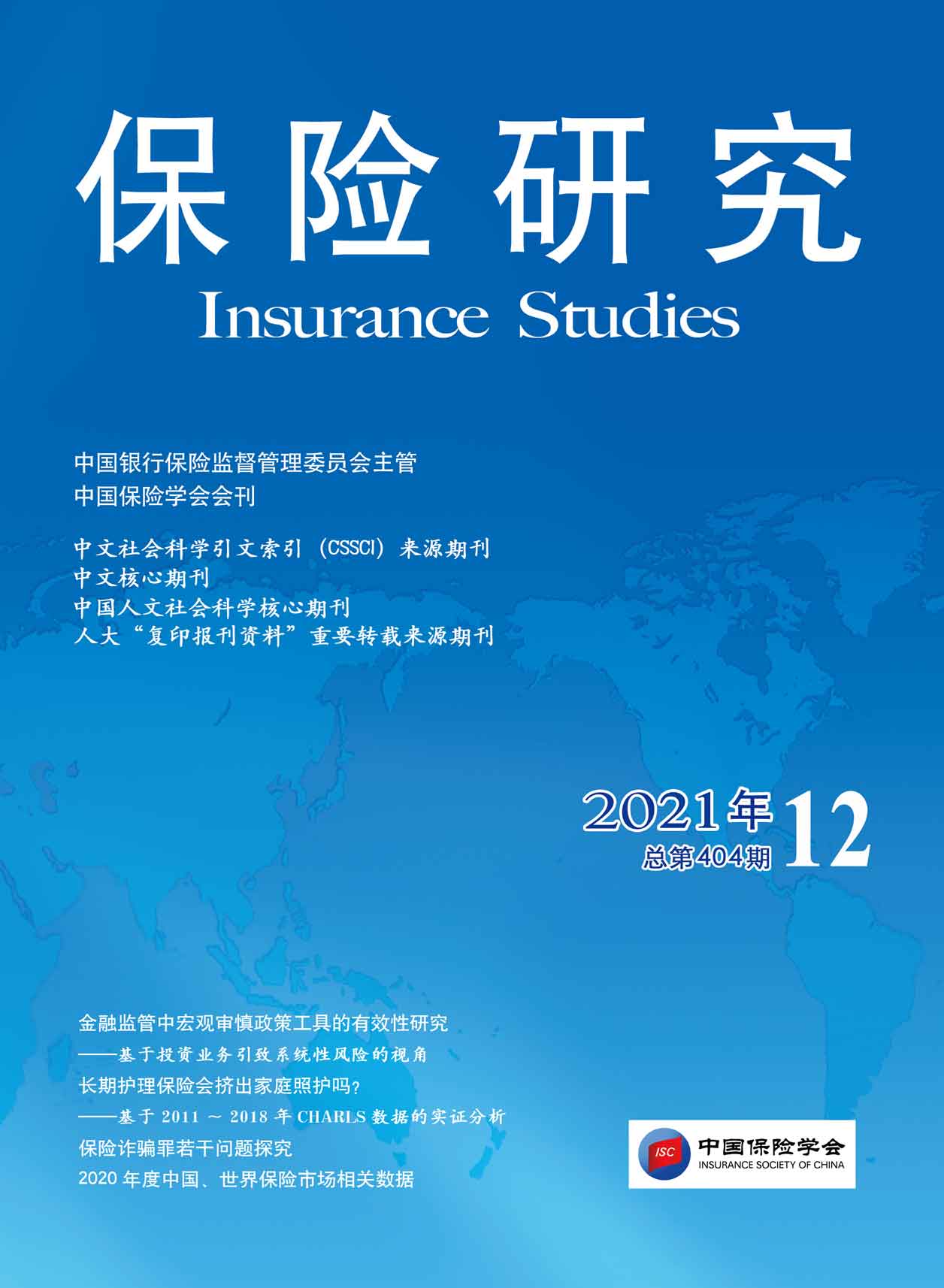
《保险研究》20211204-《环境污染责任保险与企业环境信息披露》(李敏鑫、王江寒)

《保险研究》20211205-《保险诈骗罪若干问题探究》(曹顺明、杨润宇、赵瑛)
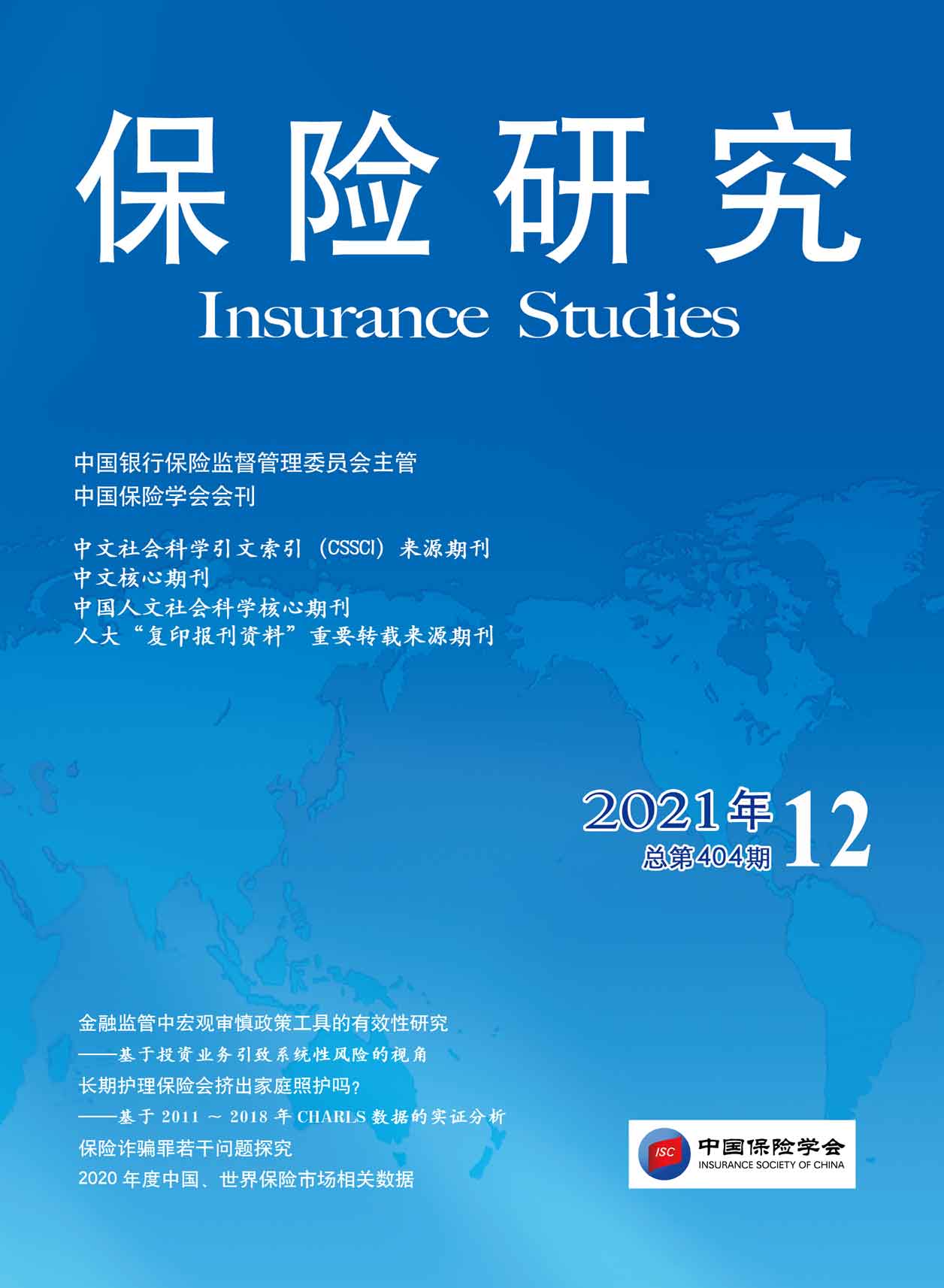
《保险研究》20211206-《<民法典>视野下保险合同第三人代缴保费问题研究》(王家骏)
